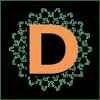Editors’ Welcome
Dandelion’s First Number
Blather is here. As we advance to make our bow, you will
look in vain for signs of servility or of any evidence of a desire to
please. We are an arrogant and depraved body of men. We are as proud
as bantams and as vain as peacocks.
Blather doesn't care. A sardonic laugh escapes us as
we bow, cruel and cynical hounds that we are. It is a terrible laugh,
the laugh of lost men. Do you get the smell of porter?
Blather (Dublin, 1934).
Dandelion is here. Although we advance not to make any kind of bow, like the editors of Flann O’Brien’s student magazine, nor comprise a depraved body of men, we are as proud as bantams. We are pleased to introduce a new type of journal, made by and for postgraduate research students. New in the sense that Dandelion, though originating at Birkbeck College, is designed to be an independent project of collaboration across different universities. We are a Student-led Initiative supported by the Arts & Humanities Research Council, so along with the bi-annual journal presented here Dandelion is also an open online network. Anyone working in the arts and humanities is welcome to use this website to promote events, start groups, circulate reading materials, and post in the forums with matters related to research and training. For our second issue going out in early 2011 we will be taking submissions from any arts researcher, as well as building an inter-institutional editorial and advisory board. For our third issue we will recruit a peer-reviewing team for submissions. Right now we encourage researchers to use the journal as a supportive publishing experience.
We present Dandelion not as an answer to the ‘publish or perish’ culture, but as a supplement. We understand that students need to send work to international journals related to a specific field; Dandelion exists to offer a space for testing new ideas, for shaping your work, and showcasing the many offshoots one finds whilst writing which though interesting and well-researched, may not go in the final thesis.
To this end, we understand that we are learning as we go, less like the ‘cruel and cynical men’ of Blather and more like their contemporaries at The Booster, Alfred Perlès, Lawrence Durrell and Henry Miller, who wrote in their opening editorial of November 1937: ‘If we are dogmatic it is only because we are uncertain of ourselves. That is why we are not dogmatic but phrenetic, diseased, polymorph, glabrous, picayune, insomniac, vertiginous and cartiligenous.’ We are all learning, uncertain, but with high standards for our own and others’ work. We invite you then to Dandelion, and welcome any involvement you may like to suggest – as reader, reviewer, editor or author.
We are delighted to present our first number, with the theme of ‘Genre’. We decided this would be a sufficiently open and interesting topic to bring together postgraduate work from different areas of the arts.
We have Tony Venezia in conversation with the novelist China Miéville, discussing such unwieldy spaces as the hybridity of genre around the Weird and sf fiction. Along with reflections on this theme as a written piece you can hear the accompanying podcast, with more discussion points and read excerpts from staff and students at Birkbeck. Donatella Valente is also in conversation, with the artist Vicki Bennett, discussing her Genre Collage and other artworks. Jamie Wood writes about the uneasy relationship between George Bellows’s 1924 painting of the Dempsey-Firpo heavyweight boxing match and the Whitney Museum of American Art, assessing the visual narrative and historical reception in terms of what Derrida calls the ‘inherent madness of genre’. Frances Cook writes about a much earlier genre, assessing the convergence of pressures that formed and sustained pilgrims’ guidebooks in Renaissance Rome. Max Sexton, discussing the 1960s TV genre of action-adventure, focuses on The Avengers’s material conditions of production and the reception of the TV film. James Wilper takes two apparently different modes of satire as his starting point, discussing the ways in which it is possible to read desire in texts by Heinrich Mann and Stephen Colbert.
In our third section of shorter pieces for this number, we have Dennis Duncan looking at genre’s etymological parent genus with surprising results, and Gill Partington discussing the genre of ‘Left Behind’, fundamentalist Christian fiction. We also have two reviews from Frank Ferrie and Bianca Leggett, offering useful and interesting responses to the often daunting business of the academic conference. To begin our issue we are very pleased to present Joseph Brooker, with a guest editorial opening out the question of genre with its conflictual impetus to both classify and break the mould, at one and the same time.
Alethia Alfonso,
Dennis Duncan, James Emmott, Jakob Hesler, Cathryn Setz, Mark Stuart-Smith,
Donatella Valente, and James Wilper
Birkbeck College, University of London
Cartoon by Mark Stuart-Smith
Journal: http://dandelionjournal.org
Network: http://dandelionnetwork.org
Email: mail@dandelionjournal.org


Comments on this article
-
http://www.pay-dayz.co.uk Used loan provider can be to request review articles for a variety of payday cash loan businesses
View all commentsby 33 akzeniust akzeniust akzeniustazer (2013-01-13)